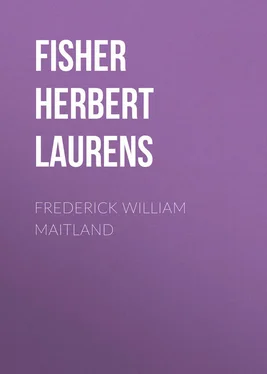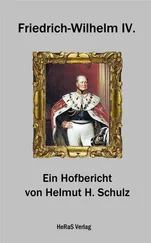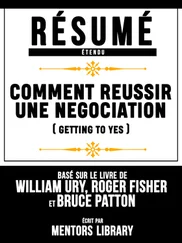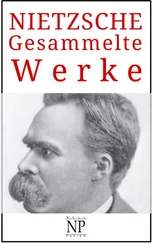Herbert Fisher - Frederick William Maitland
Здесь есть возможность читать онлайн «Herbert Fisher - Frederick William Maitland» — ознакомительный отрывок электронной книги совершенно бесплатно, а после прочтения отрывка купить полную версию. В некоторых случаях можно слушать аудио, скачать через торрент в формате fb2 и присутствует краткое содержание. Жанр: foreign_antique, foreign_prose, на английском языке. Описание произведения, (предисловие) а так же отзывы посетителей доступны на портале библиотеки ЛибКат.
- Название:Frederick William Maitland
- Автор:
- Жанр:
- Год:неизвестен
- ISBN:нет данных
- Рейтинг книги:4 / 5. Голосов: 1
-
Избранное:Добавить в избранное
- Отзывы:
-
Ваша оценка:
- 80
- 1
- 2
- 3
- 4
- 5
Frederick William Maitland: краткое содержание, описание и аннотация
Предлагаем к чтению аннотацию, описание, краткое содержание или предисловие (зависит от того, что написал сам автор книги «Frederick William Maitland»). Если вы не нашли необходимую информацию о книге — напишите в комментариях, мы постараемся отыскать её.
Frederick William Maitland — читать онлайн ознакомительный отрывок
Ниже представлен текст книги, разбитый по страницам. Система сохранения места последней прочитанной страницы, позволяет с удобством читать онлайн бесплатно книгу «Frederick William Maitland», без необходимости каждый раз заново искать на чём Вы остановились. Поставьте закладку, и сможете в любой момент перейти на страницу, на которой закончили чтение.
Интервал:
Закладка:
Working partly for Mr Rogers and partly for Mr Bradley Dyne, Maitland saw a good deal of conveyancing business and in after years was wont to lay stress upon the value of this part of his education. Conveyancing is a fine art, full of delicate technicalities, and Maitland used to say that there could be no better introduction to the study of ancient diplomata than a few years spent in the chambers of a busy conveyancer. Here every document was made to yield up its secret; every word and phrase was important, and the habit of balancing the precise practical consequences of seemingly indifferent and conventional formulæ became engrained in the mind. Paleography might teach men to read documents, diplomatics to date them and to test their authenticity; but the full significance of an ancient deed might easily escape the most exact paleographer and the most accomplished diplomatist, for the want of that finished sense for legal technicality which is the natural fruit of a conveyancing practice. 8 8 For a good instance of Maitland's trained insight see Domesday Book and Beyond , p. 232.
Business of this type, however, does not provide opportunities for forensic oratory and Maitland's voice was rarely heard in Court 9 9 Maitland once conducted an argument before Jessel, M. R. Re Morton v. Hallett (Feb. & May, 1880, Ch. 15, D. 143).
. But meanwhile he was rapidly exploring the vast province of legal science, mastering the Statute Books, reading Frenchmen, Germans and Americans, and occasionally contributing articles upon philosophical and legal topics to the Press.
To the deepest and most serious minds the literature of knowledge is also the literature of power. Maitland's outlook and ideal were at the period of intellectual virility greatly affected by two books, Savigny's Geschichte des Römischen Rechts and Stubbs' Constitutional History . The English book he found in a London Club and "read it because it was interesting," falling perhaps, as he afterwards suggested, for that very reason "more completely under its domination than those who have passed through schools of history are likely to fall." Of the German he used to say that Savigny first opened his eyes as to the way in which law should be regarded.
Justinian's Pandects only make precise
What simply sparkled in men's eyes before,
Twitched in their brow or quivered in their lip,
Waited the speech that called but would not come 10 10 Browning, Ring and the Book . See Maitland, Bracton's Note Book , vol. 1.
.
Law was a product of human life, the expression of human needs, the declaration of the social will; and so a rational view of law would be won only from some height whence it would be possible to survey the great historic prospect which stretches from the Twelve Tables and the Leges Barbarorum to the German Civil Code and the judgments reported in the morning newspaper. Readers of Bracton's Note Book will remember Maitland's description of Azo as "the Savigny of the thirteenth century," as a principal source from which our greatest medieval jurist obtained a rational conception of the domain of law. Savigny did not write the same kind of book as Azo. He worked in a different medium and on a larger canvas but with analogous effects. He made the principles of legal development intelligible by exhibiting them in the vast framework of medieval Latin and Teutonic civilization and as part of the organic growth of the Western nations. Maitland's early enthusiasm for the German master took a characteristic form: he began a translation of the history.
The translation of Savigny was neither completed nor published. Maitland's first contribution to legal literature was an anonymous article which appeared in the Westminster Review in 1879. This was not primarily an historical disquisition though it displayed a width of historical knowledge surprising in so young a man, but a bold, eloquent, and humorous plea for a sweeping change in the English law of Real Property. "Let all Property be personal property. Abolish the heir at law." This alteration in the law of inheritance would lead to great simplification and would remove much ambiguity, injustice and cost. Nothing short of this would do anything worth doing. A few little changes had been made in the past, "for accidents will happen in the best regulated museums," but it was no use recommending timid subsidiary changes while the central anomaly, the source of all complexity and confusion, was permitted to continue. "It is not unlikely," remarked the author with grave irony, "that we are behind an age whose chief ambition is to be behind itself."
The article exhibits a quality of mind which is worth attention. Maitland never allowed his clear strong common sense to be influenced by that vague emotion which the conventional imagination of half-informed people readily draws from antiquity. He loved the past but never defended an institution because it was old. He saw antiquity too vividly for that. And so despite the ever increasing span of his knowledge he retained to the end the alert temper of a reformer, ready to consider every change upon its merits, and impelled by a natural proclivity of mind to desire a state of society in some important respects very different from that which he found existing. At the same time he is far too subtle a reasoner to acquiesce in the doctrinaire logic of Natural Rights or in some expositions of social philosophy which pretended to refinements superior to those provided by empirical utilitarianism. Two early articles contributed to the pages of Mind on Mr Herbert Spencer's Theory of Society contain a modest but very sufficient exposure of the shortcomings of that popular philosopher's a priori reasoning in politics.
With these serious pursuits there was mingled a great deal of pleasant recreation. Holidays were spent in adventurous walking and climbing in the Tyrol, in Switzerland, and among the rolling fir-clad hills of the Black Forest, for Maitland as a young man was a swift and enduring walker, with the true mountaineer's contempt for high roads and level places. We hear of boating expeditions on the Thames, of visits to burlesques and pantomimes, of amusing legal squibs and parodies poured out to order without any appearance of effort. From childhood upwards music had played a large part in Maitland's life and now that the shadow of the Tripos was removed he was able to gratify his musical taste to the full. In 1873 he spent some time alone in Munich, listening to opera night after night and then travelled to Bonn that he might join his sisters at the Schumann Commemoration. Those were the days when the star of Richard Wagner was fast rising above the horizon and though he was not prepared to burn all his incense at one shrine, Maitland was a good Wagnerian. In London musical taste was experiencing a revival, the origin of which dated back, perhaps, to the starting of the Saturday Concerts at the Crystal Palace by August Manns in 1855. The musical world made pilgrimages to the Crystal Palace to listen to the orchestral compositions of Schubert and Schumann or to the St James' Hall popular concerts, founded in 1859, to enjoy the best chamber music of the greatest composers. New developments followed, the first series of the Richter Concerts in 1876 and the first performance of Wagner's Ring in 1882. Maitland with his friend Cyprian Williams regularly attended concert and opera. Without claiming to be an expert he had a good knowledge of music and a deep delight in it. One of his chief Cambridge friends, Edmund Gurney, best known perhaps as one of the principal founders of the Society for Psychical Research, wrote a valuable book on The Power of Sound and interested Maitland in the philosophy of their favourite art. "I walked once with E. Gurney in the Tyrol," Maitland wrote long afterwards, "What moods he had! On a good day it was a joy to hear him laugh!" Gurney died prematurely in 1888 and the increasing stress of work came more and more between Maitland and the concert room; but problems of sound continued to exercise a certain fascination over his mind and his last paper contributed to the Eranos Club at Cambridge on May 8, 1906, and entitled with characteristic directness "Do Birds Sing?" was a speculation as to the conditions under which articulate sound passes into music.
Читать дальшеИнтервал:
Закладка:
Похожие книги на «Frederick William Maitland»
Представляем Вашему вниманию похожие книги на «Frederick William Maitland» списком для выбора. Мы отобрали схожую по названию и смыслу литературу в надежде предоставить читателям больше вариантов отыскать новые, интересные, ещё непрочитанные произведения.
Обсуждение, отзывы о книге «Frederick William Maitland» и просто собственные мнения читателей. Оставьте ваши комментарии, напишите, что Вы думаете о произведении, его смысле или главных героях. Укажите что конкретно понравилось, а что нет, и почему Вы так считаете.












